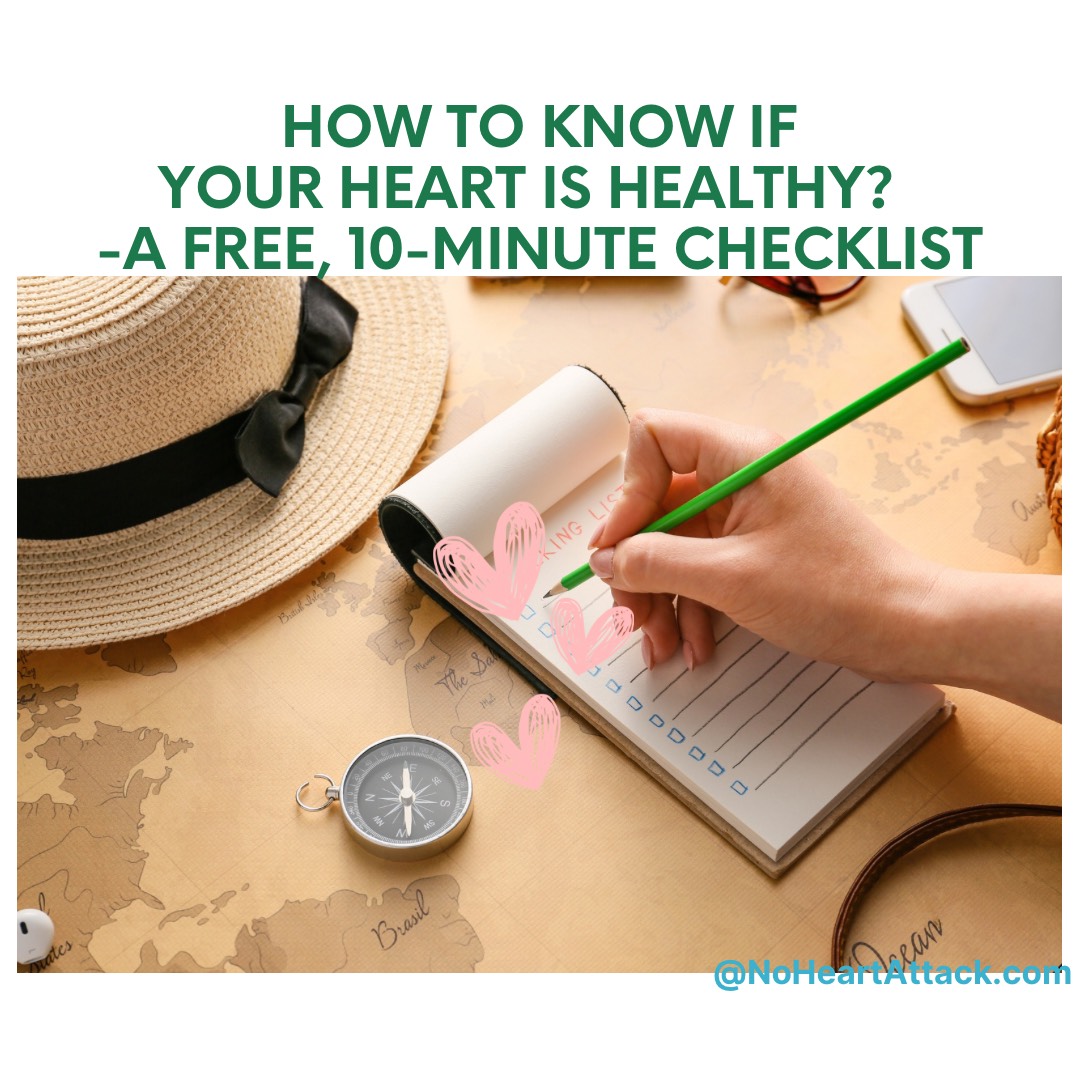
* How to Know If Your Heart is Healthy: A Free, 10-Minute Checklist
Introduction
Do you ever wonder if your heart is as healthy as it should be? The good news is that you don't need to spend hours at a clinic or spend money on expensive tests to get a preliminary idea of your cardiovascular health. In just 10 minutes, you can perform this free heart health checklist and identify areas that need attention. Let's dive in!
Your Free 10-Minute Heart Health Checklist
1. Monitor Your Resting Heart Rate (RHR)
• How to Check: Place two fingers on your wrist or neck and count beats for 60 seconds. A normal RHR is between 60-100 beats per minute.
• Why It Matters: According to Dr. Sanjay Gupta, a heart rate consistently above 80 bpm may indicate poor heart health.
2. Measure Your Waist-to-Hip Ratio
• How to Check: Divide your waist circumference by your hip circumference. A ratio above 0.9 (men) or 0.85 (women) could signal an increased risk of heart disease.
• Quick Tip: Reducing sugary beverages by just two cups per week can lower this ratio by 10% in three months.
3. Review Your Weekly Physical Activity
Checklist:
• Do you exercise at least 150 minutes per week?
• Does your activity include both cardio (like walking) and strength training?
Why It Matters: Serena Williams once shared that even a 20-minute daily walk helped her maintain peak fitness.
4. Evaluate Your Diet Habits
Checklist Questions:
• Do you eat at least 5 servings of fruits and vegetables daily?
• Are you consuming omega-3-rich foods like salmon or walnuts weekly?
• Do you limit processed and sugary foods?
Expert Insight: Dr. Caldwell Esselstyn, a pioneer in heart disease prevention, says, “A whole-food, plant-based diet is the most powerful way to stop and even reverse heart disease.”
5. Assess Your Stress Levels
• Simple Test: Rate your daily stress levels on a scale of 1-10. Chronic stress (7+) could lead to high blood pressure and inflammation.
•Quick Fix: Practice 5 minutes of deep breathing or mindfulness daily to lower stress.
6. Sleep Quality Check
Checklist Questions:
• Do you get 7-8 hours of sleep regularly?
• Do you feel refreshed when you wake up?
Why It Matters: A study by the National Sleep Foundation shows that poor sleep doubles the risk of heart attack.
7. Know Your Blood Pressure
• How to Check: Use an at-home blood pressure monitor. A normal reading is under 120/80 mmHg.
• Celebrity Tip: Actor Samuel L. Jackson advocates regular blood pressure checks, saying, “Knowing your numbers can save your life.”
What Your Results Mean
0-2 Red Flags: Great! Your heart health seems strong. Keep up the good work.
3-4 Red Flags: Moderate concern. Start incorporating more heart-healthy habits immediately.
5+ Red Flags: High risk. It's time to consult a healthcare professional and create a personalized action plan.
Small Habits, Big Impact: Additional Tips
• Replace sugary drinks with water or green tea to cut your heart attack risk by 15%.
• Aim to walk an extra 2,000 steps per day to lower cholesterol naturally.
• Switch to heart-healthy oils like olive or avocado oil.
Engaging Call to Action
Want a more detailed, professional heart health assessment?
Sign up for our expert-guided cardiovascular recovery program to get personalized recommendations, meal plans, and access to advanced supplements.
Or join our exclusive email community to receive weekly tips, tools, and updates on keeping your heart and brain healthy!
References for Further Reading
1. Dr. Sanjay Gupta's Guide to Resting Heart Rate and Longevity.
2. National Sleep Foundation: Sleep and Cardiovascular Health.
3. Framingham Heart Study: Waist-to-Hip Ratio and Heart Disease Risk.
